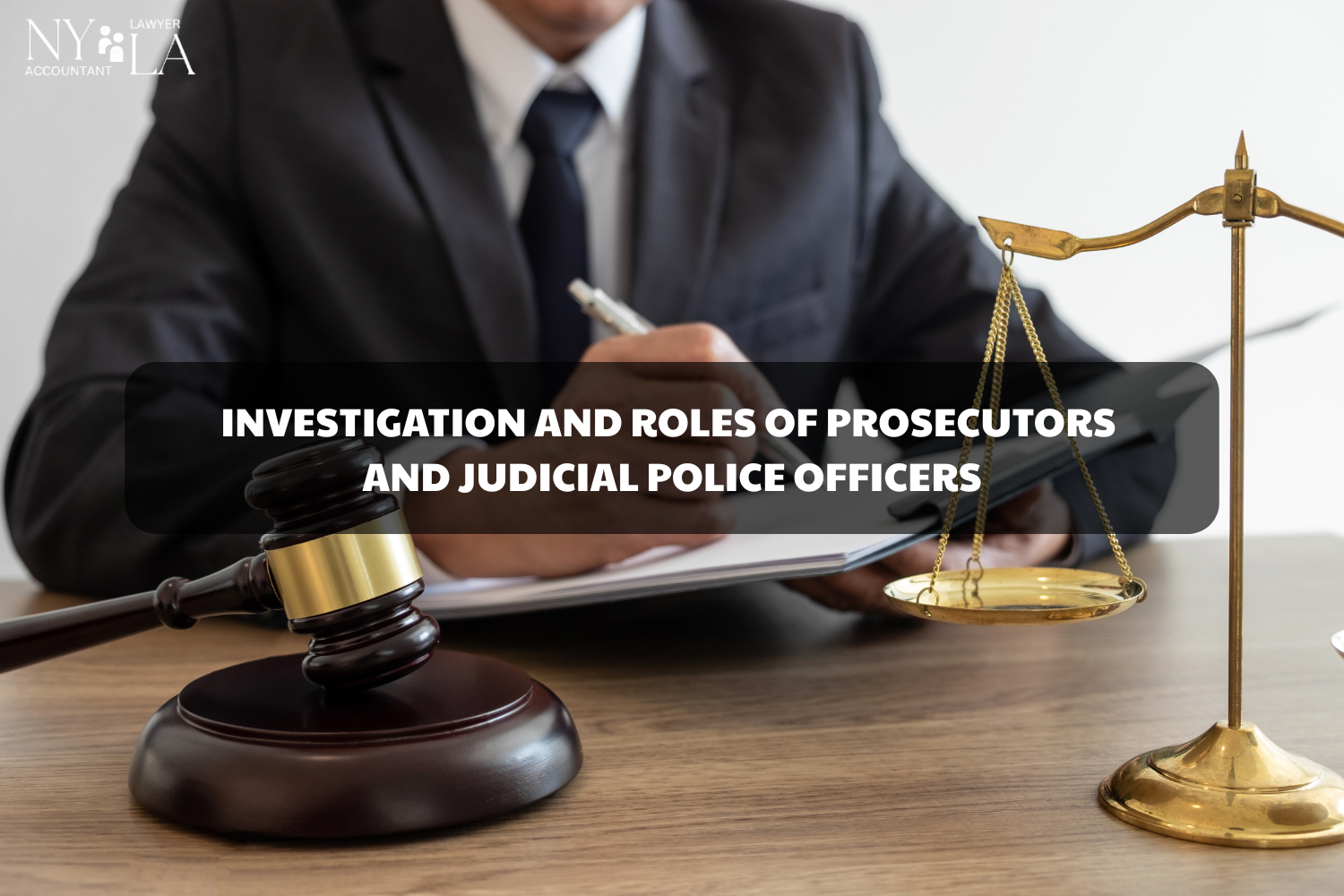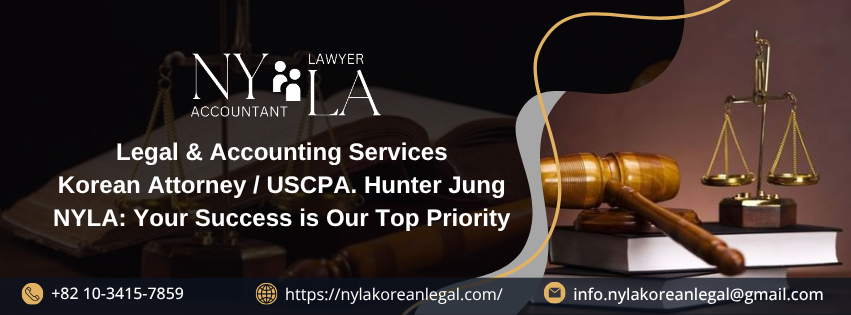Summary
- 1. Introduction to the Roles of Prosecutors and Judicial Police Officers
- 2. Legal Framework: Criminal Procedure Act
- 3. Cooperation Between Prosecutors and Senior Judicial Police Officers
- 4. Duties and Responsibilities of Prosecutors
- 5. Role of Senior Judicial Police Officers in Criminal Investigations
- 6. Junior Judicial Police Officers and Their Supportive Roles
- 7. The Importance of Coordination in Criminal Justice
- 8. Challenges and Opportunities for Improvement
- 9. Conclusion: Building Trust Through Legal Cooperation
- 10. About NYLA – Korean Legal Office
1. Introduction to the Roles of Prosecutors and Judicial Police Officers
In the realm of criminal justice, the collaboration between prosecutors and judicial police officers plays a pivotal role in maintaining law and order. Their duties are intricately connected through the Criminal Procedure Act, which outlines their specific responsibilities, procedures, and legal authority. Understanding how prosecutors and judicial police officers operate not only sheds light on the justice system but also reveals the checks and balances built into criminal investigations.
2. Legal Framework: Criminal Procedure Act
The foundation of all investigations involving prosecutors and judicial police officers in South Korea is the Criminal Procedure Act. This law governs the investigative process, prosecution, and cooperation mechanisms between different legal entities. It ensures that all criminal investigations are conducted fairly, transparently, and under legal scrutiny.
3. Cooperation Between Prosecutors and Senior Judicial Police Officers
A core principle in the investigation process is the cooperation between prosecutors and senior judicial police officers. The law mandates that both parties coordinate closely when conducting investigations and managing prosecutions. This cooperation ensures efficient collection of evidence, appropriate legal proceedings, and the prevention of abuse of power.
Senior judicial police officers—such as police administrative officers and police superintendents—work under the strategic oversight of prosecutors. They play an essential role in the execution of ground-level investigations. Meanwhile, prosecutors maintain authority over whether to initiate or sustain prosecutions, ensuring adherence to legal standards.
Moreover, the general rules for conducting criminal investigations are clearly defined and regulated by Presidential Decree. These rules promote uniformity and accountability in investigations managed by both prosecutors and judicial police officers.

4. Duties and Responsibilities of Prosecutors
Prosecutors are legal officials responsible for investigating crimes and prosecuting offenders. When suspicion arises about the commission of a criminal offense, prosecutors are authorized to:
- Identify the offender
- Determine the facts surrounding the offense
- Collect, evaluate, and preserve evidence
In this role, prosecutors are seen as both investigators and litigators. Their decisions on whether to indict or dismiss charges carry significant weight in the justice process. In many cases, prosecutors direct judicial police officers on the necessary steps to collect further evidence or clarify legal points.
Additionally, prosecutors ensure that constitutional rights are respected during investigations. Their oversight is essential for avoiding unlawful detention, coercive interrogation, or mishandling of evidence.
5. Role of Senior Judicial Police Officers in Criminal Investigations
Senior judicial police officers are often the first point of contact in criminal cases. These include individuals in ranks such as police superintendents, captains, and lieutenants. Their main responsibilities include:
- Responding to crime reports
- Investigating the scene and collecting physical evidence
- Identifying suspects and witnesses
- Conducting preliminary interrogations
Their actions must comply with the legal guidance provided by prosecutors. This hierarchical relationship ensures that investigative procedures are consistent with the law and that no legal violations occur during the process.
In high-profile or complex cases, senior judicial police officers often work in tandem with prosecutors from the early stages, forming a unified investigative strategy.
6. Junior Judicial Police Officers and Their Supportive Roles
While prosecutors and senior officers take the lead, junior judicial police officers also contribute significantly. These include police sergeants, senior patrol officers, and patrol officers. Their duties mainly involve:
- Assisting in field investigations
- Enforcing procedural protocols
- Managing and transporting evidence
- Supporting surveillance and tracking operations
Though their tasks are operational in nature, junior officers are essential to ensuring that investigations proceed smoothly. Their observations and reports often provide critical leads that senior officers and prosecutors can act upon.
7. The Importance of Coordination in Criminal Justice
A well-functioning legal system depends on effective communication and coordination between prosecutors and judicial police officers. Without this synergy, investigations may suffer from delays, errors, or legal violations. The Criminal Procedure Act emphasizes that both parties must not only understand their respective duties but also trust and respect each other’s roles.
For instance, prosecutors should not micromanage every aspect of a police investigation, while police officers must recognize the prosecutorial role in ensuring legal integrity. Such balance enhances the overall effectiveness of the criminal justice system.
8. Challenges and Opportunities for Improvement
Despite the robust framework, the relationship between prosecutors and judicial police officers occasionally encounters friction—especially in cases involving high public interest or political pressure. Clear guidelines and transparent protocols help mitigate these challenges, but continuous training, inter-agency dialogue, and legal reforms may be needed to adapt to evolving crime trends.
Moreover, the rise of cybercrime and white-collar offenses has introduced new dimensions to criminal investigations. In such cases, the expertise of both prosecutors and specialized judicial police units becomes more critical.
9. Conclusion: Building Trust Through Legal Cooperation
The collaboration between prosecutors and judicial police officers is at the heart of a fair and effective criminal justice system. Their coordinated efforts—rooted in the Criminal Procedure Act—ensure that crimes are investigated lawfully and efficiently. As legal challenges evolve, this partnership must be nurtured through ongoing education, procedural updates, and technological support.
Ultimately, the integrity and public trust in the criminal justice process depend on how well prosecutors and judicial police officers perform their roles while upholding the rule of law.
10. About NYLA – Korean Legal Office

■ NYLA – Your Trusted Legal Partner in Korea
At NYLA, we understand that the success of foreign businesses in Korea requires not only a solid business strategy but also reliable legal support. With a team of experienced Korean attorneys and legal professionals, NYLA provides tailored legal services for companies, investors, and individuals operating or planning to establish a presence in Korea.
We support our clients throughout the entire business journey with comprehensive services, including:
- Legal consultation on company establishment, taxation, and immigration;
- Advice on commercial real estate, franchising, and product distribution;
- Support in human resources, marketing, and business strategy.
In addition to legal advisory, NYLA also represents clients in civil litigation cases related to business, labor, marriage, family, and inheritance to ensure their rights and interests are fully protected.
■ Contact NYLA

If you’re a foreign business or individual looking for a reliable legal partner in Korea, NYLA is here to help. We are committed to delivering effective, practical, and personalized legal solutions for every client.
With a proven track record of assisting hundreds of international clients, our team is equipped to help you navigate complex legal challenges—whether it’s commercial disputes, contract issues, or foreign investment guidance.
Don’t let legal matters hold you back. Let NYLA be your trusted guide in the Korean market.
■ Get in touch with NYLA for expert legal support
| Website: https://nylakoreanlegal.com/
FB: https://www.facebook.com/nyla.koreanlegal Tiktok: https://www.tiktok.com/@nylakoreanlegal Youtube: https://www.youtube.com/@NYLA-xd8qx Email: info.NYLAkoreanlegal@gmail.com SĐT: +82 10-3415-7859 |
 |






















































